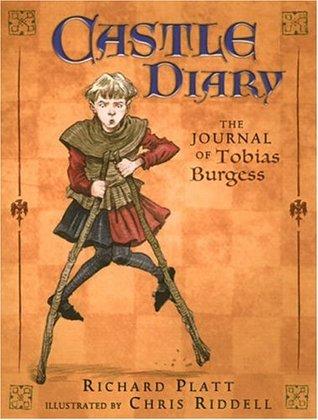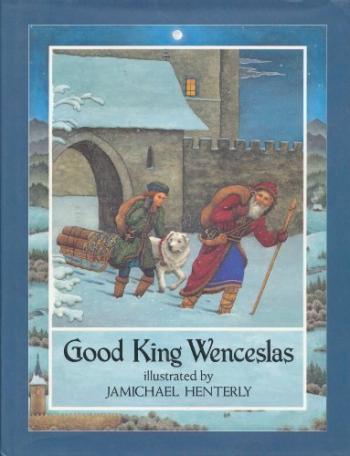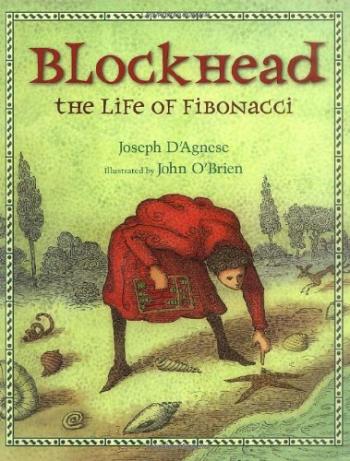
scrounge: /skrounj/ informal verb: to actively seek [books] from any available source

Castle Diary: The Journal of Tobias Burgess is an informative and whimsical look at what it might have been like to live in a castle in the Middle Ages, according to the fictional diary of Tobias Burgess, an eleven-year-old boy who becomes a page at his uncle's castle.
Toby writes his entries over the course of a year (in a Medieval-sounding voice, even!), detailing the different things he is learning and experiencing -- from school to church, hunts to jousts, and basic day-to-day events such as meals, comradeship, and punishments, this is a fun way to learn about Medieval times, especially as they played out within the walls of a castle.
Scrounged From: AbeBooks.com
Format: Paperback
Author: Richard Platt
Illustrator: Chris Riddell
Pages: 128
Content Advisory: References to the dungeon/prisoners, cleaning "garderobes," and similar unsavory aspects of Medieval life.

"Good King Wenceslas looked out
On the Feast of Stephen..."
And that's about all I could have recited of this song, except a mention of "Saint Agnes' fountain," and several archaic terms like "thither" and "hence." Though I had heard it sung before, I'd never actually looked up the lyrics until now. Fortunately, this picture book version of Good King Wenceslas has helped to give me a much fuller image of what the song is about.
The text is simply the words to the song, with wintery illustrations telling the story of the king who looked out and saw a peasant gathering wood for fuel, and decided to bring him food and wine to bless his family on that cold winter night (I can appreciate that this book changes the original word "flesh" to "food" to avoid any confusion).
While there is no specific mention of "Christmas" in this song, the image of a king leaving his safe and warm castle to help someone in need is extremely reminiscent of the Christmas story. Although I've never celebrated Saint Stephen's Day, it is observed on December 26 (27 for some) by Christians around the world, and therefore I found this song, as well as its admonition to "bless the poor" very fitting for a celebration of Christmas.
Scrounged From: Our local library
Format: Hardcover
Author: John Mason Neale
Illustrator: Jamichael Henterly
Pages: 24
Content Advisory: None

I'll be honest, words tend to hold much more interest for me than numbers. But that means that if I'm going to learn about a new mathematical concept, a picture book like Blockhead: The Life of Fibonacci is probably the best way to do so.
The author, Joseph D'Agnese, admits in the informational page at the end that very little is actually known of Fibonacci's life. So some aspects of this story are speculation, but we are told the basics: that Leonardo Fibonacci was born in Italy in the 1170s and became one of the greatest known Western mathematicians of the Middle Ages.
This book is written from a first-person perspective, and the title is taken from Fibonacci's nickname, "Bigollo," which could mean "traveler," but could also mean "idler, dreamer, or lazy person." In this story, Fibonacci's obsession with numbers leads to him being labeled as a "blockhead" by some, which of course is not true.
As we learn (through dialog with Fibonacci's friend, Alfredo), Fibonacci not only popularized the Hindu-Arabic numeral system that we use today, but he also noticed numerical patterns in the world around him that came up over and over again. This book includes an explanation of his "rabbit problem," (leading to the Fibonacci sequence) and a visualization of the golden ratio spiral. The illustrations include several other examples of the fibonacci sequence in nature, which readers are invited to go back and search for on the last page.
While the book does not really delve into the implications of these numbers, it still gave me a visually engaging way to learn about them, as well as an appreciation for Fibonacci's curiosity, and the incredible complexity of nature. As Fibonacci tells us at the end, "Now you see why I don't mind being called Blockhead, after all!"
Scrounged From: Amazon
Format: Hardcover
Author: Joseph D'Agnese
Illustrator: John O'Brien
Pages: 40
Content Advisory: None (though some may object to use of the phrase "mother nature")

